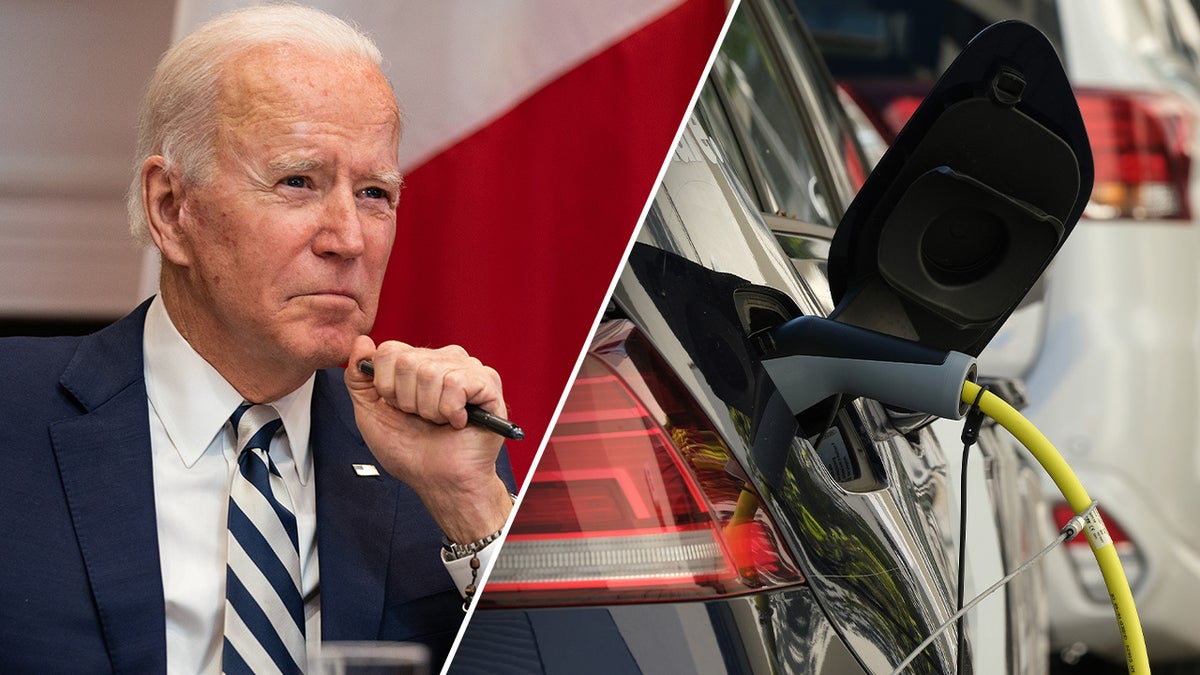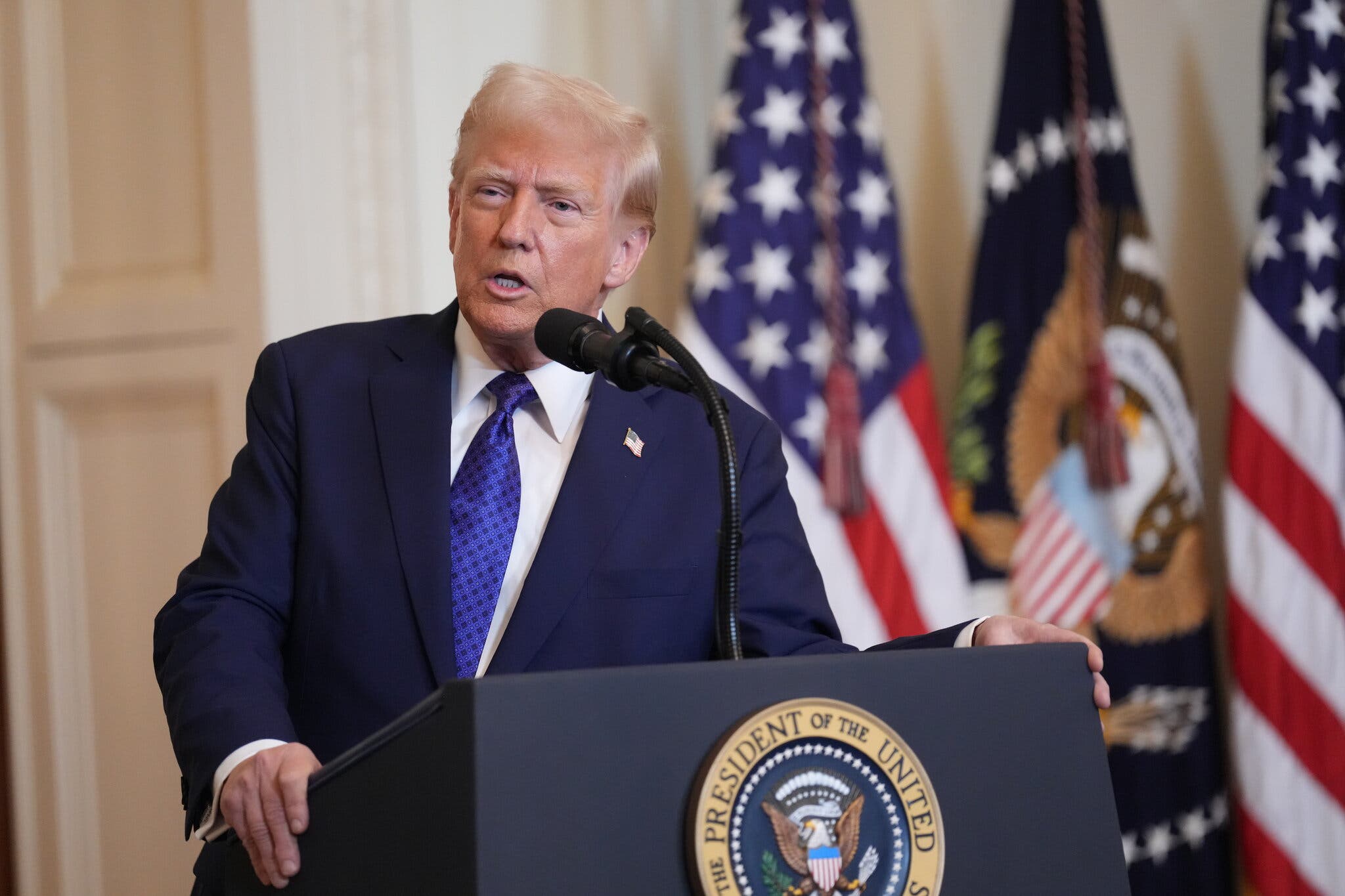Car Dealerships Push Back Against EV Sales Requirements

Table of Contents
Financial Concerns Fueling Dealer Opposition
The financial implications of EV sales mandates are a major source of contention for many dealerships. The significant upfront investment and potentially lower profit margins associated with EVs pose considerable challenges, particularly for smaller businesses.
High Upfront Investment Costs for EV Infrastructure
Transitioning to EV sales requires substantial investment in new infrastructure. Dealerships need to:
- Invest in EV charging stations: Installing and maintaining a network of reliable charging stations requires significant capital expenditure. The cost varies based on the number of chargers, their power capacity, and the necessary grid upgrades.
- Train technicians on EV servicing: Electric vehicles have different maintenance needs compared to gasoline cars. Dealerships need to invest in specialized training programs for their technicians to service EV batteries, motors, and other components. This specialized training adds to the overall cost of transitioning to EV sales.
- Upgrade service bays: Service bays may require modifications to safely handle high-voltage batteries and other EV-specific components. This includes specialized tools and safety equipment.
This represents a significant financial burden, especially for smaller dealerships with limited resources. Lack of government subsidies or insufficient loan programs specifically designed for EV infrastructure upgrades exacerbates the financial strain. Many dealerships are struggling to secure affordable financing for these necessary improvements.
Lower Profit Margins on EV Sales
Many dealerships report lower profit margins on EV sales compared to gasoline-powered vehicles. Several factors contribute to this:
- Reduced service revenue: EVs require less frequent and less extensive maintenance than gasoline cars, resulting in lower service and parts revenue for dealerships. This is a crucial source of revenue for many dealerships, which is significantly impacted by the lower maintenance requirements of electric vehicles.
- Lower profit per vehicle: The current pricing structure for EVs, coupled with competitive pressures, often results in lower profit margins per vehicle sold compared to traditional vehicles. This makes it challenging for dealerships to maintain profitability while meeting EV sales quotas.
- Impact on overall dealership profitability: The combined effect of lower profit margins and reduced service revenue could negatively impact the overall profitability and sustainability of dealerships, especially those heavily reliant on servicing gasoline vehicles.
Concerns about Consumer Demand and Market Readiness
Beyond financial concerns, dealerships also express anxieties about consumer demand and the overall market readiness for a widespread EV adoption.
Limited Consumer Awareness and Acceptance of EVs
Consumer adoption of EVs is not yet widespread, hindered by various factors:
- Range anxiety: Many consumers remain concerned about the limited range of some EVs and the availability of charging stations. The fear of running out of charge before reaching a charging station remains a significant barrier to EV adoption.
- Charging infrastructure limitations: The current charging infrastructure, while growing, is still inadequate in many regions, lacking widespread availability and convenience. A reliable and convenient charging infrastructure is crucial for widespread EV adoption.
- Lack of consumer education: Many consumers lack sufficient information about EVs, their benefits, and how to best utilize them. Targeted marketing and educational campaigns are necessary to address this knowledge gap and increase consumer confidence.
Addressing these concerns through comprehensive marketing, education, and expansion of the charging infrastructure is vital for encouraging EV adoption.
Challenges in Managing EV Inventory and Logistics
The unique characteristics of EVs present additional logistical challenges for dealerships:
- Specialized transportation needs: Transporting EVs requires specialized carriers capable of handling the weight and potential damage risks of the battery pack.
- Managing battery storage: Storing EV batteries requires careful consideration of safety regulations and environmental conditions. Dealerships must invest in appropriate storage facilities to ensure battery safety and longevity.
- Supply chain variations: The supply chain for EVs can differ significantly from that of gasoline cars, leading to uncertainties in vehicle availability and delivery times.
These logistical complexities add to the operational burden on dealerships already facing the transition to selling and servicing EVs.
Regulatory Burden and Compliance Issues
The stringent nature of many EV sales mandates and the inconsistencies in government regulations further complicate the situation for dealerships.
Difficulty in Meeting Stringent EV Sales Quotas
Arbitrary sales quotas often fail to account for regional variations in consumer demand and market conditions:
- Unrealistic sales targets: Mandated quotas may be unrealistic for dealerships located in areas with lower consumer demand for EVs or limited charging infrastructure.
- Uneven geographical distribution: The imposition of uniform quotas ignores the significant differences in market conditions across different geographic regions.
- Impact on dealership viability: Penalties for non-compliance with these quotas can severely threaten the viability and survival of smaller dealerships.
A more flexible and regionally-sensitive approach to setting EV sales quotas is crucial.
Lack of Clarity and Consistency in Government Regulations
Conflicting regulations across different states and regions create significant compliance challenges:
- Inconsistent state regulations: Variations in regulations across states make it difficult for dealerships to maintain compliance and plan for the future.
- Unpredictable policy changes: Frequent changes to EV policies increase uncertainty and hinder long-term planning, discouraging investment in EV infrastructure and training.
- Difficulty in long-term planning: The lack of clarity and consistency in government regulations makes it challenging for dealerships to make informed decisions about their investments and long-term strategies.
Greater clarity, consistency, and collaboration between different levels of government are essential for creating a supportive and predictable regulatory environment.
Conclusion
The resistance from car dealerships to mandatory EV sales requirements stems from a complex interplay of financial concerns, market readiness issues, and regulatory burdens. Addressing these challenges requires a collaborative approach involving governments, manufacturers, and dealerships. Governments need to provide more supportive policies, including financial incentives, realistic sales quotas tailored to regional markets, and readily available resources for infrastructure upgrades. A balanced strategy that considers the concerns of dealerships while accelerating the adoption of electric vehicles is crucial for the long-term success of the automotive industry. Failure to address these concerns could result in unintended consequences, potentially harming the broader effort to achieve widespread electric vehicle adoption. Understanding the reasons behind the pushback against EV sales requirements is essential for navigating this critical phase of automotive transformation. Let's work together to ensure a smooth and equitable transition to a sustainable transportation future.

Featured Posts
-
 Bbc Big Weekend 2025 Sefton Park Tickets How To Apply And Increase Your Chances
May 24, 2025
Bbc Big Weekend 2025 Sefton Park Tickets How To Apply And Increase Your Chances
May 24, 2025 -
 Nyt Mini Sunday Crossword Puzzle April 6 2025 Complete Guide
May 24, 2025
Nyt Mini Sunday Crossword Puzzle April 6 2025 Complete Guide
May 24, 2025 -
 Porsche 956 Muezede Tavan Asimli Sergilemenin Nedenleri
May 24, 2025
Porsche 956 Muezede Tavan Asimli Sergilemenin Nedenleri
May 24, 2025 -
 Buffetts Departure Whats Next For Berkshire Hathaways Apple Investment
May 24, 2025
Buffetts Departure Whats Next For Berkshire Hathaways Apple Investment
May 24, 2025 -
 2 Fall On Amsterdam Stock Exchange Impact Of Trumps Tariff Announcement
May 24, 2025
2 Fall On Amsterdam Stock Exchange Impact Of Trumps Tariff Announcement
May 24, 2025
